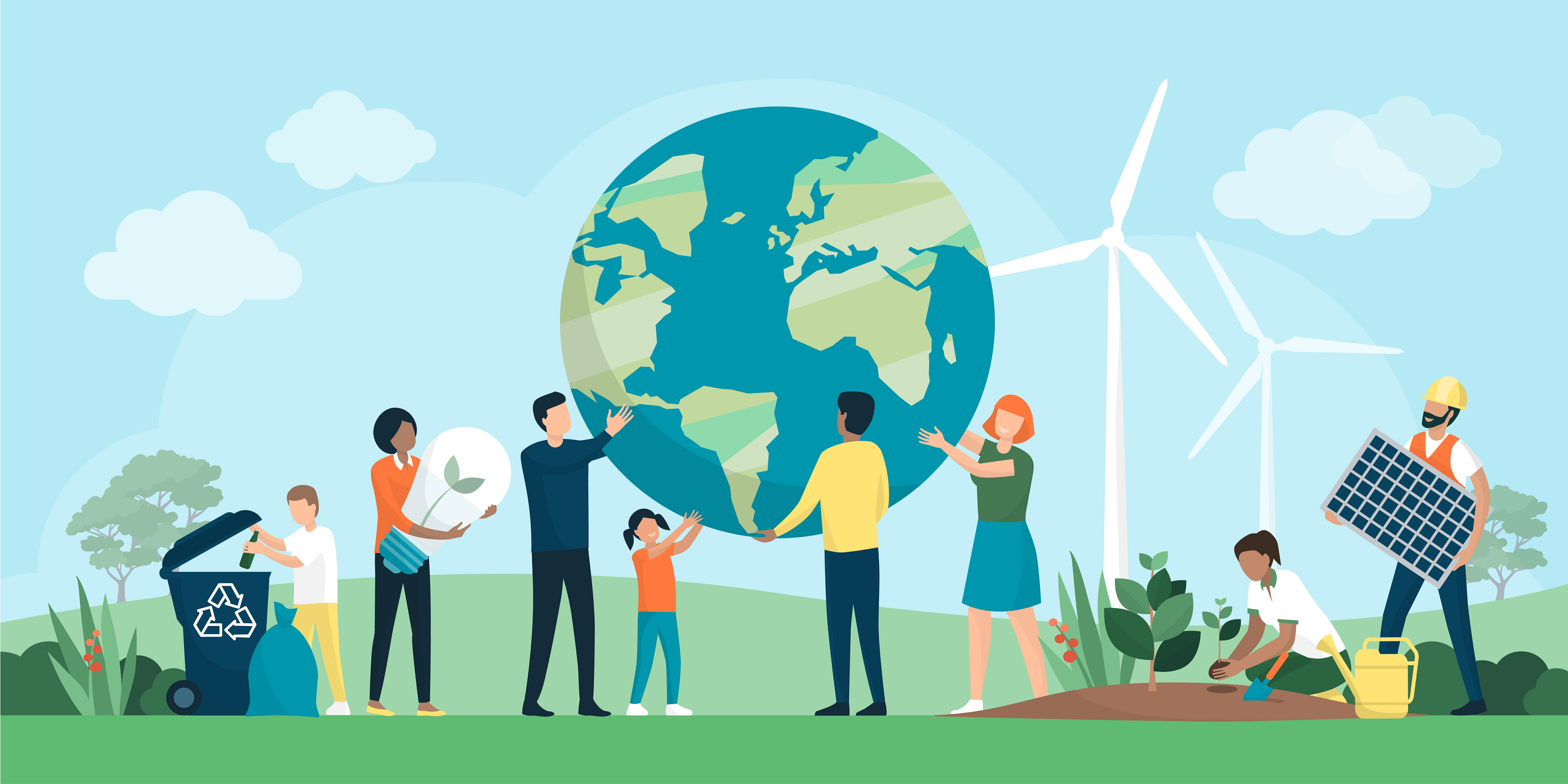
UN IPCC Report Spells Disaster For The Future
IPCC Report
The most recent report from the UN’s Intergovernmental Panel on Climate Change (IPCC), authored by 234 scientists from 66 countries, has highlighted how dire the climate situation in which we find ourselves is.
The report outlined projections for a variety of scenarios, ranging from the most optimistic to the most extreme, we might expect in the future depending on the amount we can reduce our carbon emissions by.
The report begins, “It is unequivocal that human influence has warmed the atmosphere, ocean and land.” This was a noteworthy shift in language compared to the previous IPCC report, which stated that it was only “extremely likely” that human activity had caused temperatures to rise.
IPCC co-author Friederike Otto, climatologist at the University of Oxford, said, “There is no uncertainty language in this sentence, because there is no uncertainty that global warming is caused by human activity and the burning of fossil fuels.” At JBX PaperPak, we understand – with no uncertainty – the effect that the cycle of human production and consumption is having on our carbon footprint.
Climate Change
Average temperatures are already 1.1 – 1.2°C higher than pre-industrial levels, and at our current level of emissions we are likely to reach 1.5°C within 20 years. If nothing is done to tackle greenhouse gas emissions, then the potential numbers are much higher and much more alarming. This will have devastating effects on life, culture, and the natural beauty of not only Ireland, but the entire planet.
The UN Secretary General Antonio Guterres called the report a “code red for humanity”, saying, “The alarm bells are deafening, and the evidence is irrefutable: greenhouse gas emissions from fossil fuel burning and deforestation are choking our planet and putting billions of people at immediate risk. Global heating is affecting every region on Earth, with many of the changes becoming irreversible.”
The report claims many of the effects of climate change are already irreversible; for example, it is “virtually certain” that sea levels will continue rising throughout the rest of the century and ‘will remain elevated for thousands of years.’ We do, however, have the power to control the extent of the damage, with drastic reduction in our greenhouse emissions being the most critical factor. We could, in our lifetime, lose our treasured coastal areas; Brittas Bay, Inch Beach, Carlingford Lough and many other iconic Irish places could be gone.
In the IPCC’s most optimistic scenario in which we limit temperature increase to 1.5°C, the occurrence of rare extreme weather conditions will still become far more common than they are now. Severe heat waves used to occur on average only once every 50 years, and now we are experiencing them once a decade – they will continue to become more regular and more frequent as temperatures continue to rise.
Irish Climate
A report published by the Irish Environmental Protection Agency, Marine Institute and Met Éireann found that average temperatures in Ireland have increased by more than 1°C in the last 120 years, and that 15 of the 20 warmest years on record have occurred since 1990. The Status of Ireland Climate Report 2020 also revealed that since 1990, Ireland has seen a 6% increase in the amount of rainfall and a 2 – 3 metre increase in sea levels.
Not only are we losing our beautiful coastal areas to rising sea levels and increased rainfall, but the rising temperatures will take away fundamental aspects of our culture. We will lose the cold winter evenings spent in our beautiful thatched cottages, wrapped up in Aran jumpers with the whole family sat round the fireplace. These times, with a Guinness for dad, a Baileys for mum, a club orange for the kids and packets of Tayto crisps all round, are key elements of Irish culture, and we are at risk of losing them.
Dr Ned Dwyer, author of the Status of Ireland Climate 2020 report, warned of the potential harm that could be done to the Irish economy. He said that if we do not make real change, then “how do we ensure that our towns and cities do not get flooded, how do we ensure that our roads and rail infrastructure is going to stay good and not either get melted because of heatwaves or get flooded due to excess rainfall.”
It will not just be Ireland that feels these effects, and it is not just heat waves that we will see more of. Tropical cyclones are becoming stronger, most land areas are experiencing more rain and snow fall, severe droughts are now 1.7 times more frequent, and fire seasons are getting longer and more intense.
Flooding around coastal areas has more than doubled since the 1960s, and the coastal surges that we used to experience only once a century will be happening once a year by 2100. In the more extreme of the scenarios laid out by the IPCC, we could experience as much as a 15-metre increase in sea levels if we pass certain tipping points that cause runaway warming. Projections by Gamma Location Intelligence warn that this could put over 70,000 addresses in Ireland at risk, with more than 62,000 of those being residential addresses.
The Irish government approved has approved a climate bill in which they are committing to bring Ireland to carbon neutrality by 2050, with a 51% cut in emissions promised by 2030. Eamon Ryan, Minister for the Environment, has said Ireland will match the EU’s emissions targets. At JBX PaperPak, we are glad to see the Irish government taking these steps, but we want to see a greater commitment to reducing Ireland’s carbon emissions and bringing us towards a circular economy.
JBX PaperPak
The reason JBX PaperPak was founded was ultimately to show that there is an alternative to the way we have been doing things. We want to show that sustainable ways of doing business and sustainable alternatives to products that harm the environment are available to us. JBX is proof of that.
Our story has been challenging; JBX PaperPak was founded on the eve of the coronavirus pandemic. With the increased prevalence of plastic pollution in the media and the long awaited single-use plastics bans by the EU and the UK, we were looking to hit the ground running. However, COVID-19 completely shut down all the sectors that make up the majority of our business. Being such a new company things looked scary for JBX, but we held faith. We retained all of our staff, and we worked on increasing the efficiency of our production – we are now producing more than 2 million of our ISO certified, fully recyclable, compostable, biodegradable and plastic-free paper straws per week. Just like the Irish people, JBX showed resilience; we held strong throughout the year and a half of lockdowns because we are here for the long run.
Share this article
Related articles for you
New Climate Reporting Mandates | Northern Ireland
The Success of the Irish Deposit Return Scheme
Ireland Embraces a Greener Future with New Irish Deposit Return Scheme
2023: A Year of Growth and Success | Merry Christmas from JBX PaperPak!
The Overwhelming Case for Paper Straws
Ireland’s New Steps Towards Greener Waste Management
Subscribe To Our Newsletter
To keep you up date to our new products and lates news
Free shipping on all orders over £200*
Subscribe To Our Newsletter
To keep you up date to our new products and lates news
Free shipping on all orders over £200*
Frequently Asked Questions
Our paper straws are made by stacking 3 plies of high-quality food grade kraft paper and putting them through a core-winding machine that applies an adhesive and rolls the straws into shape. They are then cut to size, coated in lacquer to ensure quality and are then ready to be sold.
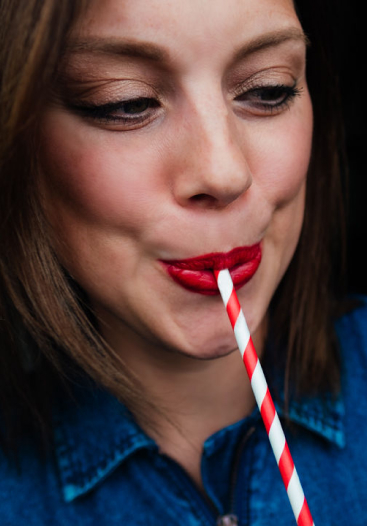

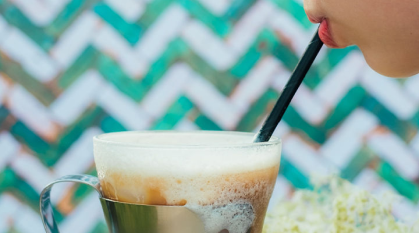


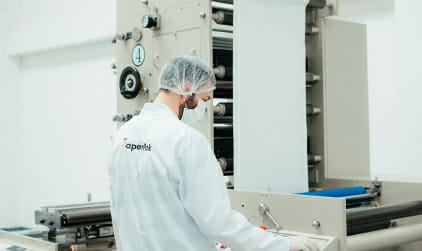

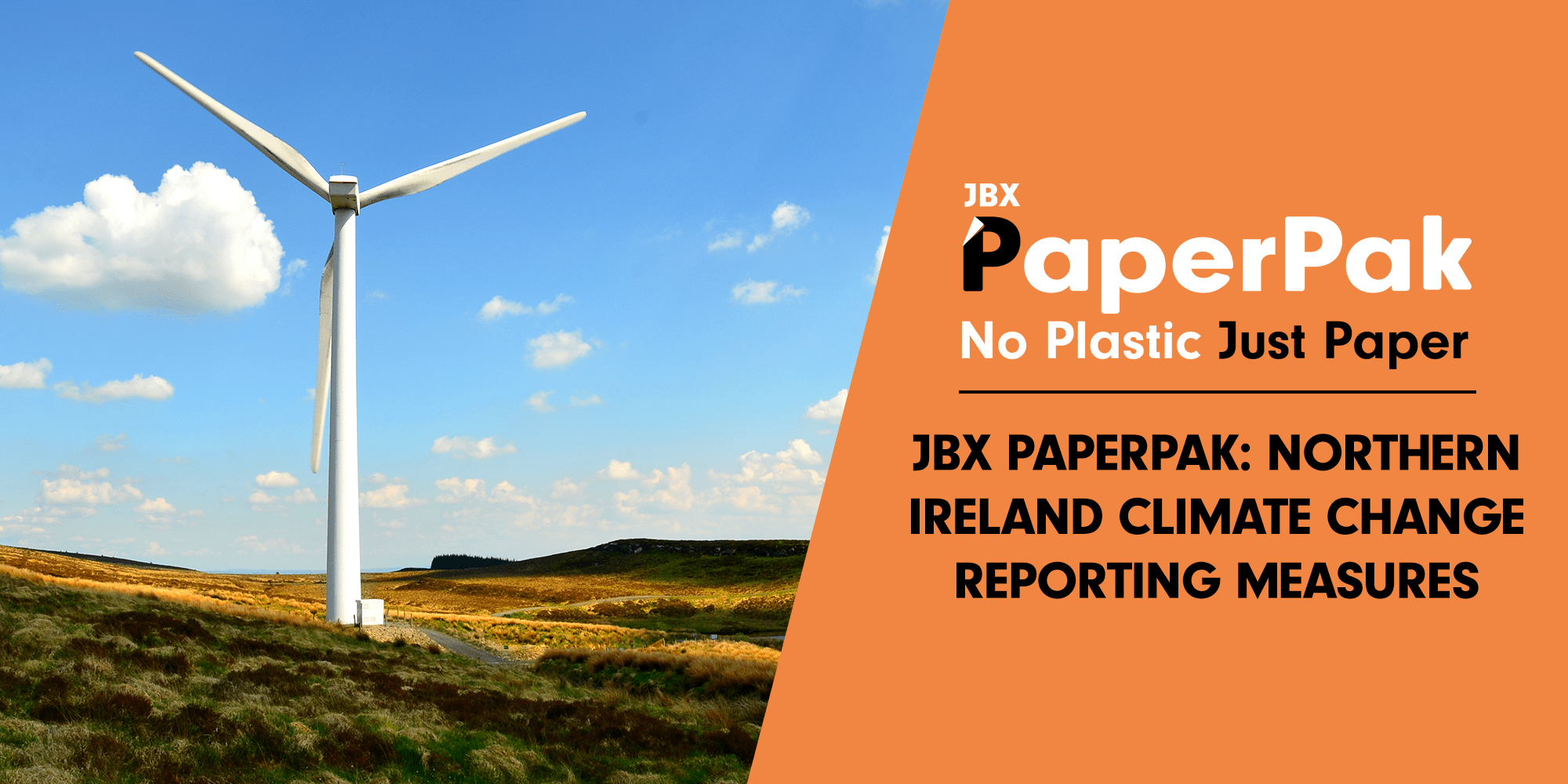
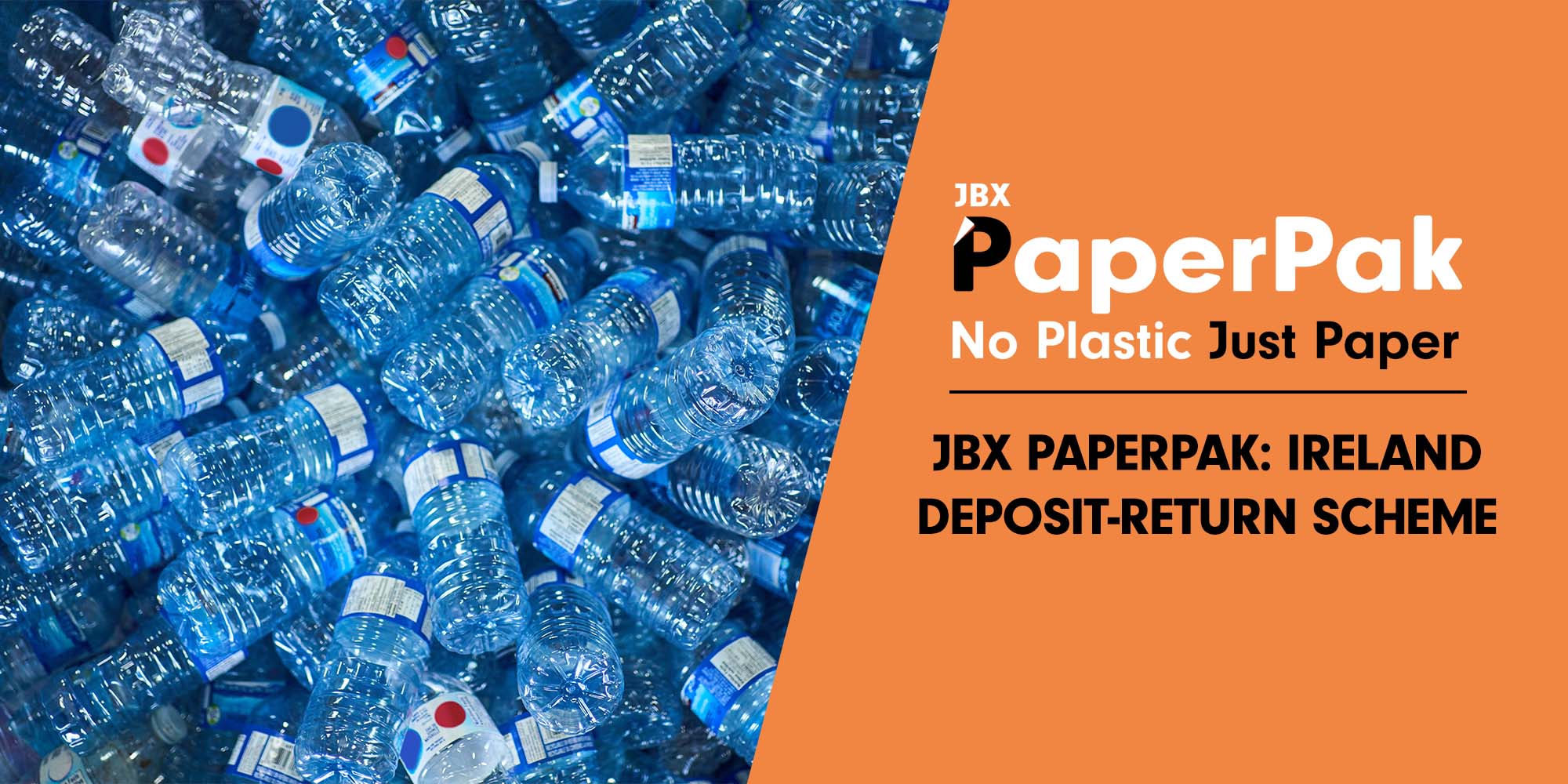
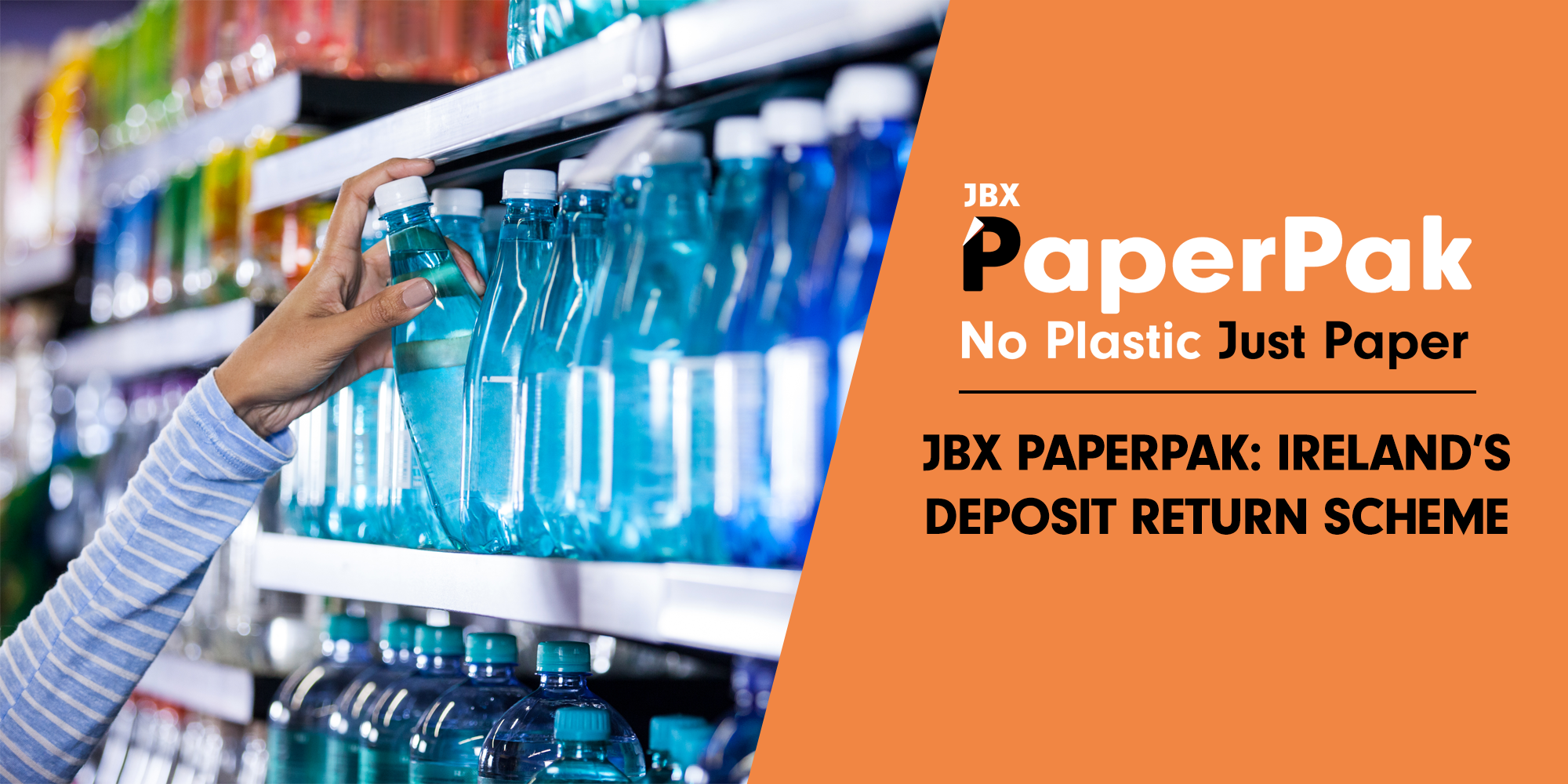

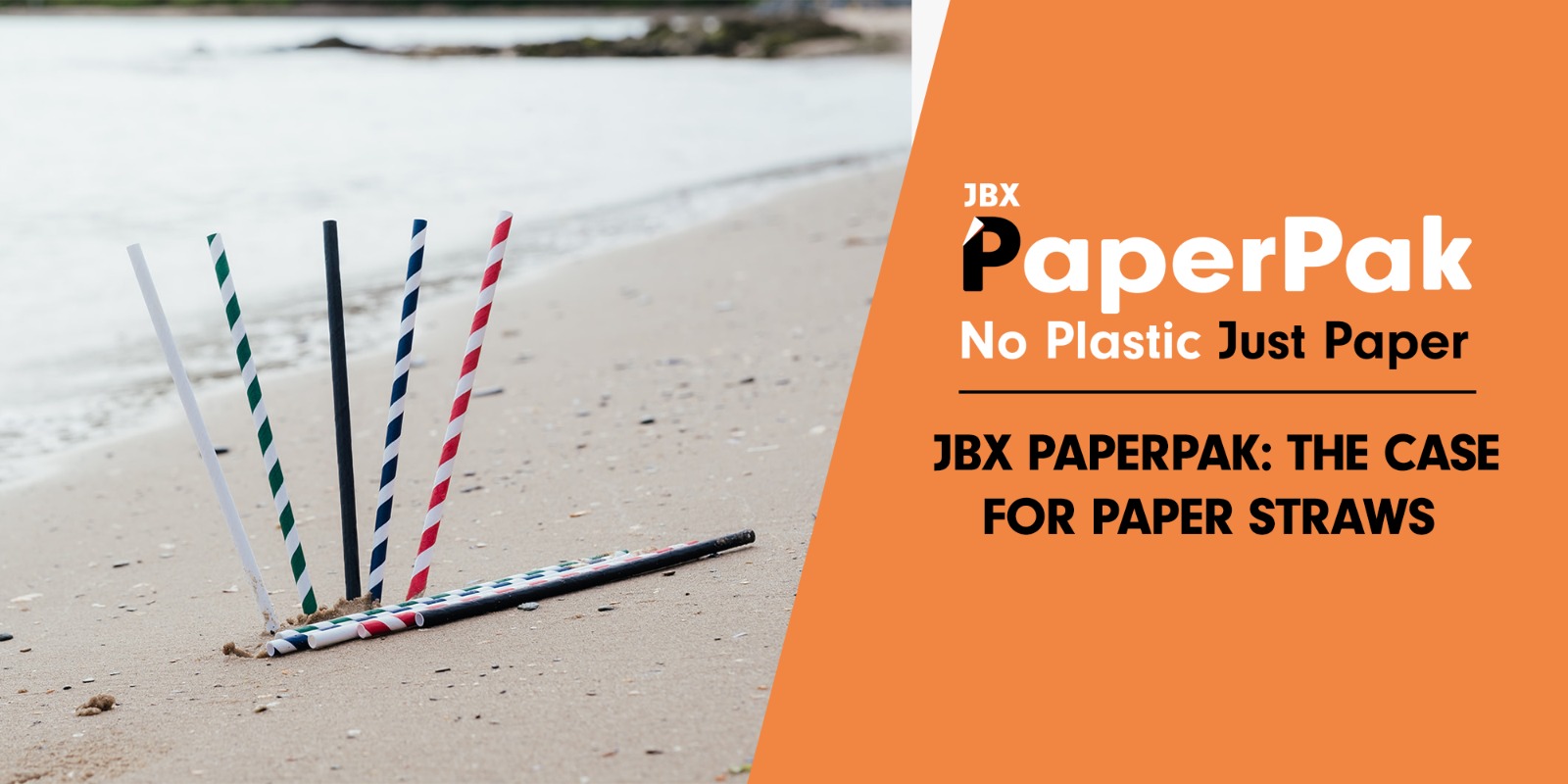
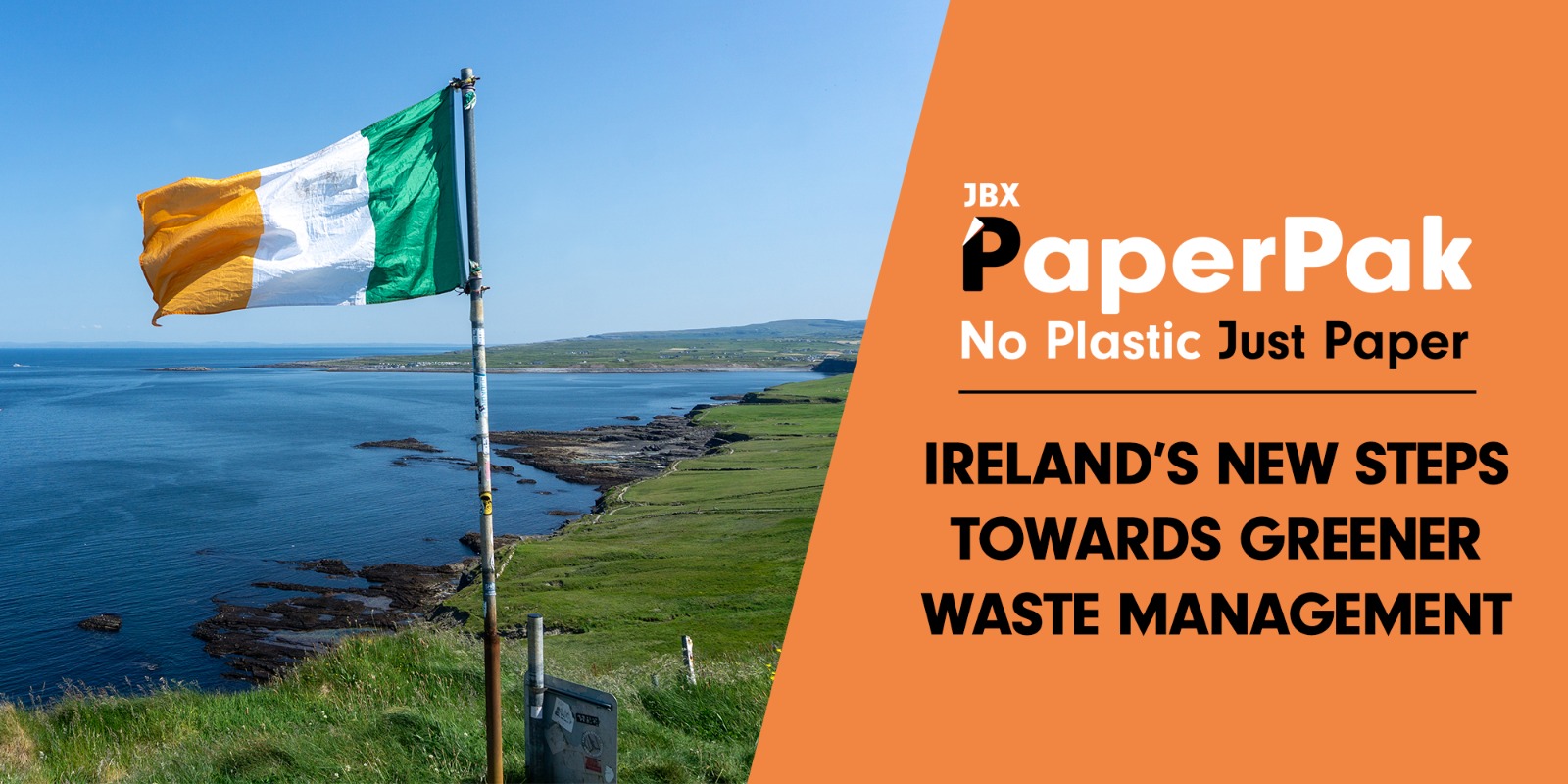

Get social